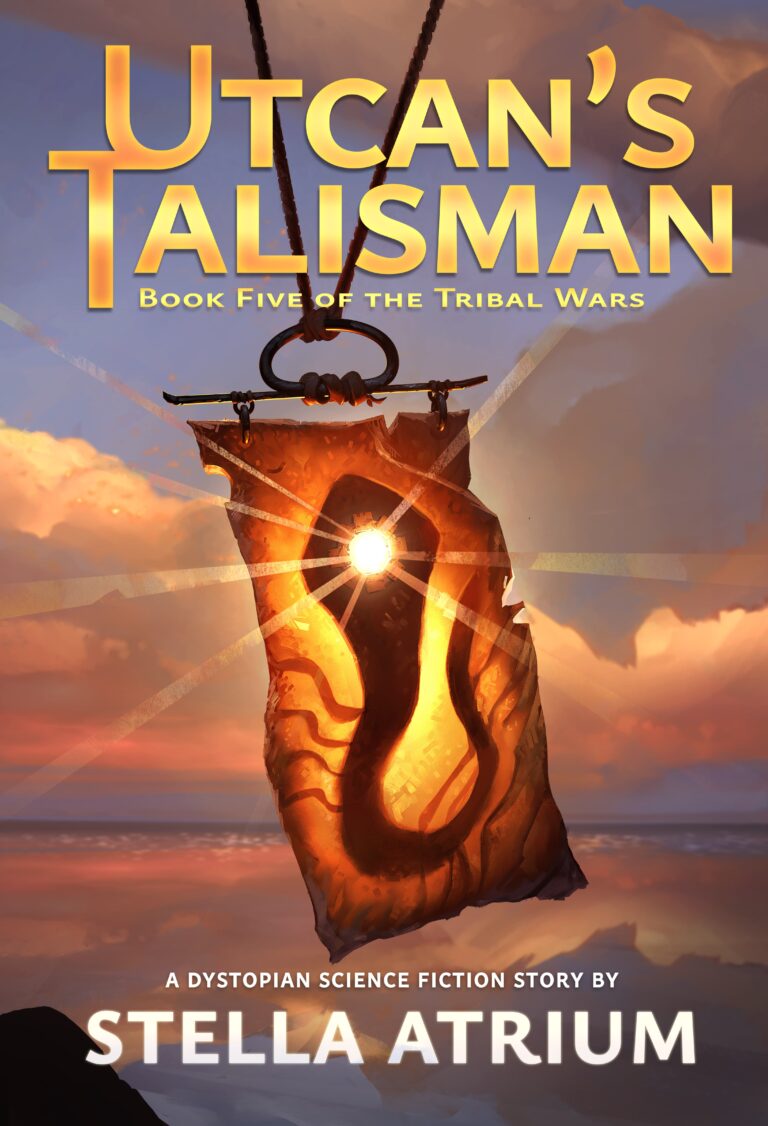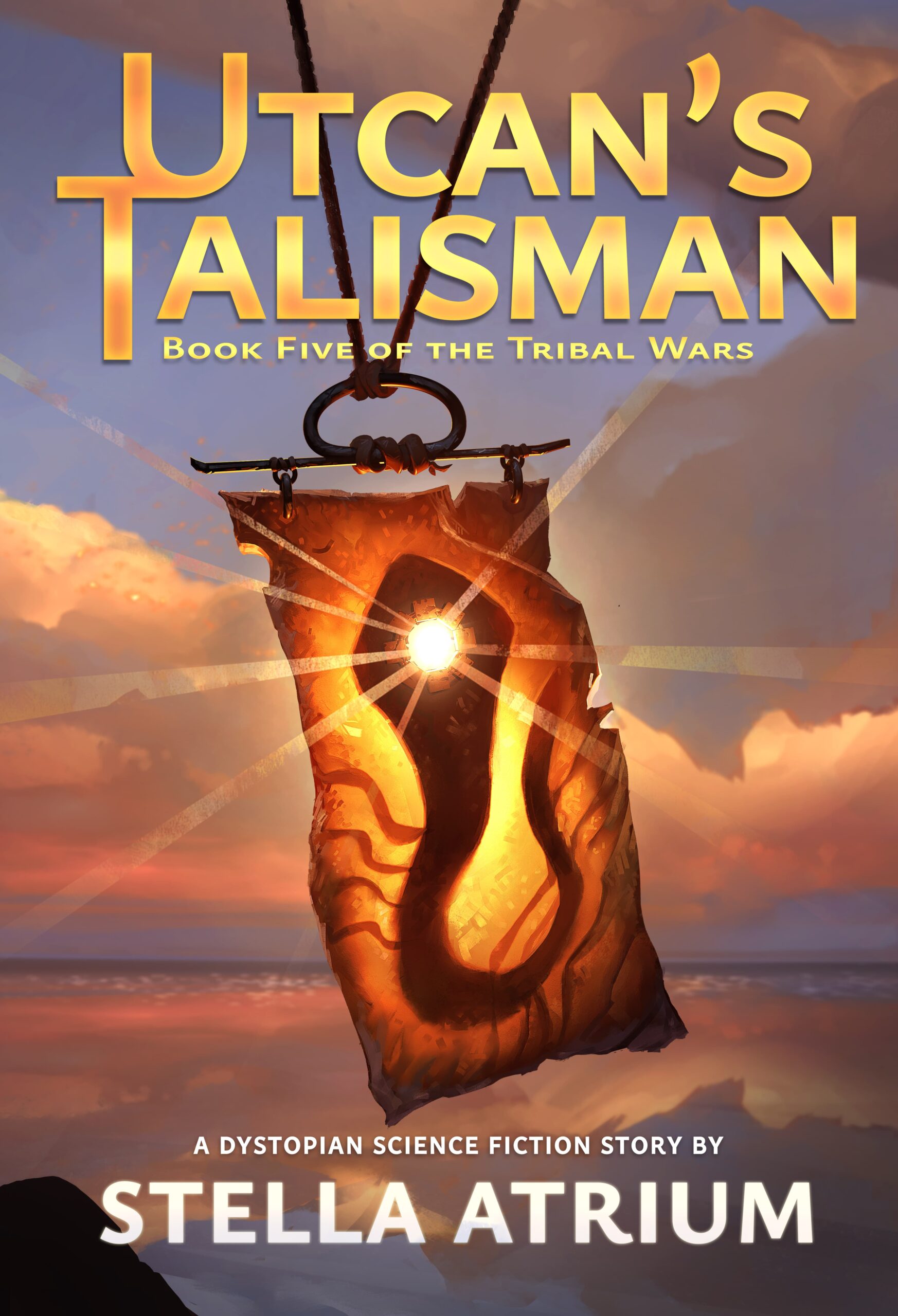Interloping corporations from Earth have established themselves on Dolvia, mining precious metals and extracting other goods from the indigenous societies. But the great game of politics grinds onward, as the tribes and their leaders jockey for power, observers consider the potential strength of uniting into one tribal confederation, and youths begin to explore their nascent magical abilities.
UTCAN’S TALISMAN is the fifth in Stella Atrium’s Tribal Wars series, and, to its credit, it spends no time establishing its world, characters, or plot. Readers immediately find themselves in Utica, a port city smelling of “fish and hemp and wet wood,” as scholar-and-sorceress Bybiis carefully observes how this society produces and powers its magic. This experience characterizes the whole of UTCAN’S TALISMAN: in each section, the reader tags along with a sharp-eyed outsider—an anthropologist, a journalist, a politician—as they navigate a startling, beautiful, thoughtfully constructed society. The effect is rich and rewarding; the narrative fully immerses the reader in constructed space, reinforced by naturalistic language studded with character (most enjoyably in dialects, like one dependent on the present participle: “His father is not being friends to my mother’s brother”). As with much speculative fiction, there’s a glossary’s worth of jargon and alien terminology, but UTCAN’S TALISMAN is smart enough not to waste time explaining it all. The shape of a karkar or the biology of a gualarep are not as important as how the characters react to and negotiate them, and this fluid forward motion ultimately makes for a more engaging and enjoyable reading experience.
Readers of the previous Tribal Wars installments will be better-positioned to recognize long story arcs, but new readers are warned: there’s very little evident plot in UTCAN’S TALISMAN. Things certainly happen, but it’s not always clear whether or how a given event is significant or not. The revelation that a given character does or does not have magical powers, for instance, seems meaningful to others but isn’t always so for the reader. Notably, even character deaths aren’t always given much attention, and several apparently important personages are killed “off-screen.” The eponymous talisman itself only appears exceedingly late in the text, and its significance is muted at best. Surprisingly, though, this hardly impacts the pleasure of reading. The settings are so carefully drawn, and the network of characters and societies so dense, that even without an events-focused plot, a kind of story is told regardless: major players, with competing interests and ulterior motives, interact with one another through their human agents; and those human agents move through a diplomatic tissue of society. Ambassadors, politicians, capitalists, and journalists all know each other from years of working together (and against one another). Although they have individual lives and stories, even the exit or death of a specific person does little to disrupt the grander flow of long-term designs shaped by partially submerged power structures. In this sense, the story of UTCAN’S TALISMAN is not only complex but very real.
It may require greater-than-average patience, and sci-fi fans looking for a space opera or run-and-gun action should steer clear. But a reader who appreciates a well-imagined and beautifully rendered world inhabited by thoughtful characters who both construct and resist networks of power will certainly appreciate this novel.
Though it may be inaccessible to readers unfamiliar with previous installments in the series, Stella Atrium’s UTCAN’S TALISMAN is complex and sensuous enough to please anyone willing to sink into its deep layers of storytelling.
~Dan Accardi for IndieReader


